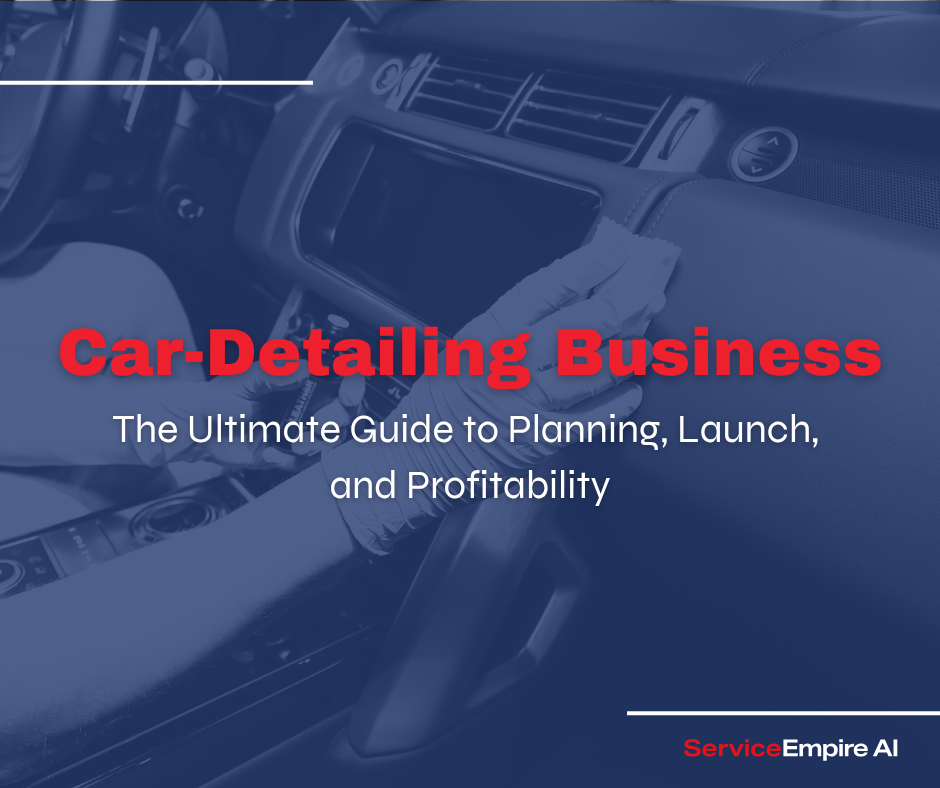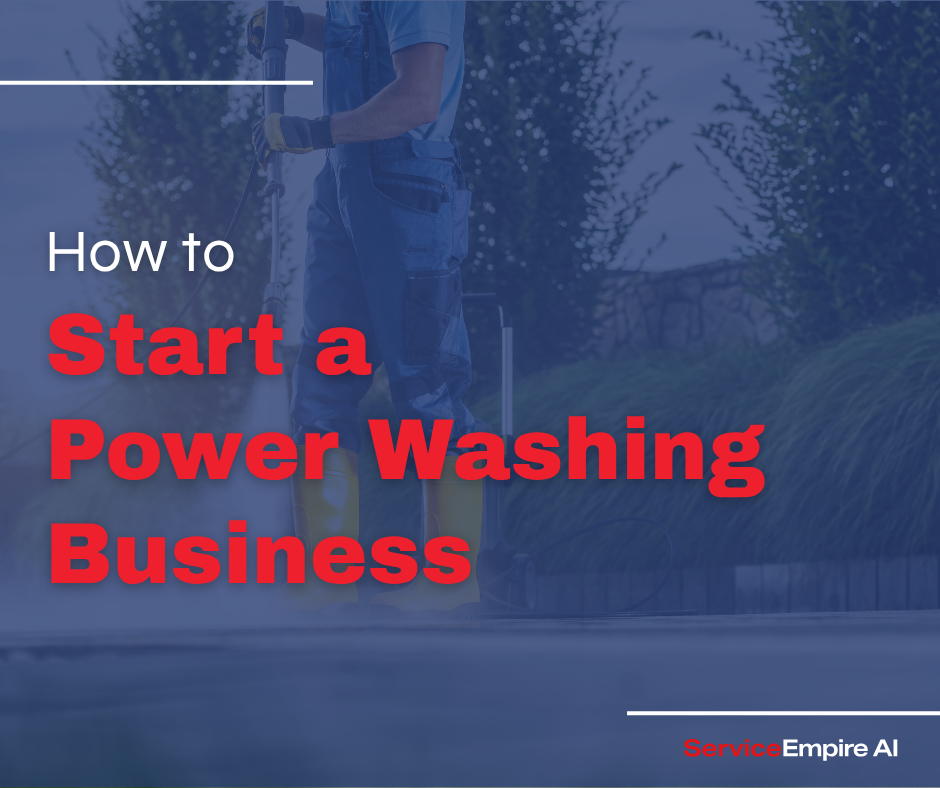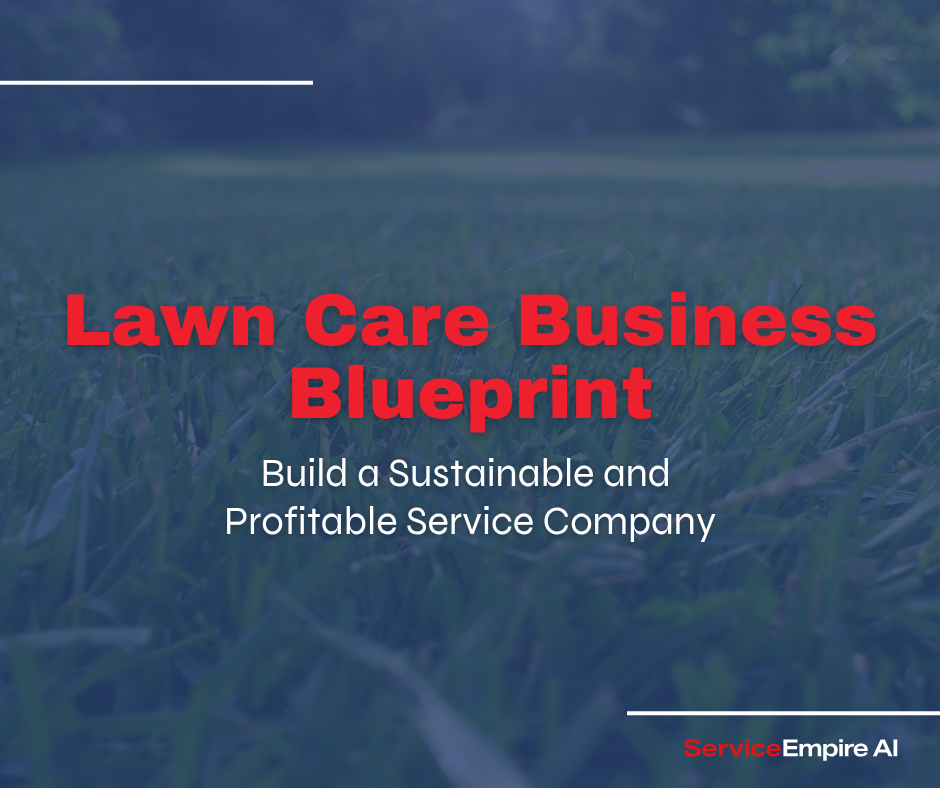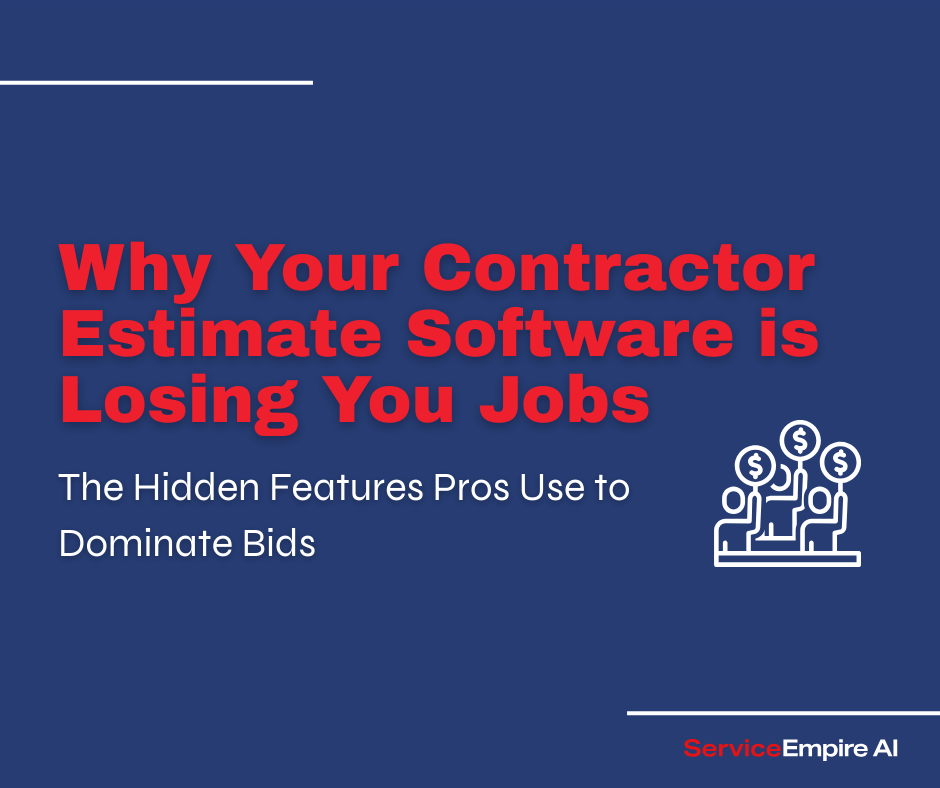
The car detailing industry continues to experience remarkable growth. In 2024, it was estimated $41.4 Billion, with projections of $58.06 Billion by 2030. That's growing at an annual rate of 5.9%!
This thriving sector offers entrepreneurs an attractive business opportunity with relatively low barriers to entry and flexible operational models. A car detailing business provides specialized cleaning and restoration services that go far beyond a basic car wash, offering everything from exterior polishing to interior deep cleaning and protection services.
Whether you're considering a mobile operation that brings services directly to customers, a fixed location detail shop, or a hybrid model, the car detailing business can be an ideal venture for those passionate about automobiles and customer service. With proper planning and execution, detailing businesses offer potential for strong profit margins, repeat clientele, and various expansion opportunities. This comprehensive guide covers everything you need to know to plan, launch, and grow a successful car detailing business in today's competitive market.
What is a Car Detailing Business?
A car detailing business provides premium cleaning, restoration, and protection services designed to maintain and enhance vehicles' appearance and condition. Unlike standard car washes that focus on basic exterior cleaning, professional detailing offers comprehensive care for both interior and exterior components.
Professional Detailing vs. Regular Car Washing
Types of Detailing Business Models
Fixed Location: A permanent facility where customers bring their vehicles
- Pros: Controlled environment, no travel required, multiple vehicles simultaneously
- Cons: Higher overhead, location-dependent, requires customer travel
Mobile Detailing: Services delivered at customer locations
- Pros: Lower startup costs, convenience for customers, no facility overhead
- Cons: Weather dependent, equipment transport needs, travel time
Hybrid Model: Combining both fixed and mobile services
- Pros: Flexibility, diverse revenue streams, wider customer reach
- Cons: More complex operations, higher initial investment, management challenges
Common Detailing Services
Exterior Detailing:
- Washing and drying
- Clay bar treatment
- Paint correction and polishing
- Paint sealant or wax application
- Trim and tire dressing
- Ceramic coating application
- Headlight restoration
Interior Detailing:
- Vacuuming and steam cleaning
- Leather cleaning and conditioning
- Plastic and vinyl treatment
- Carpet and upholstery shampooing
- Odor elimination
- Dashboard and console detailing
- Glass cleaning
Specialty Services:
- Paint protection film installation
- Ceramic coating application
- Engine bay cleaning
- Headliner restoration
- Convertible top cleaning/protection
- Scratch and swirl removal
Market Research for Car Detailing Business
Comprehensive market research provides the foundation for a successful detailing business, helping you identify opportunities and avoid costly missteps.
Local Market Assessment
Before launching, analyze your local market:
- Vehicle ownership density and types in your service area
- Average household income and spending on vehicle maintenance
- Seasonal weather patterns affecting service demand
- Local car enthusiast communities and events
- Commercial fleet operations potential
Competitor Analysis
Evaluate existing detailing businesses in your area:
- Service offerings and specializations
- Pricing structures and package options
- Operating hours and capacity
- Customer reviews and reputation
- Marketing strategies and positioning
Identify gaps in the market where your business could establish a competitive advantage, whether through specialized services, convenience factors, or targeting underserved customer segments.
Target Customer Identification
Successful detailing businesses often focus on specific customer segments:
- Luxury vehicle owners seeking premium care
- Busy professionals valuing convenience and time savings
- Auto enthusiasts and collectors with specialty vehicles
- Commercial fleet managers requiring regular maintenance
- Car dealerships needing pre-sale preparation
Understanding your ideal customers' preferences, pain points, and spending habits will inform every aspect of your business, from service offerings to marketing messaging.
Car Detailing Business Models
Selecting the right business model is a crucial early decision that affects startup costs, operational requirements, and growth potential.
Fixed Location Detailing
A permanent facility offers several advantages:
- Controlled environment regardless of weather
- Ability to serve multiple vehicles simultaneously
- Opportunity for retail product sales
- Enhanced professional appearance
- Potential for equipment expansion
However, fixed locations require significant initial investment:
- Lease costs ($1,500-$5,000/month depending on location)
- Facility buildout and improvements ($10,000-$30,000)
- Water reclamation systems ($5,000-$15,000)
- Permanent equipment installation
- Utility costs and maintenance
Mobile Detailing Business
Mobile operations bring services directly to customers:
- Lower initial investment ($15,000-$50,000)
- No lease or facility overhead
- Premium pricing for convenience
- Wider service area potential
- Flexibility in operating hours
Challenges include:
- Weather dependency
- Equipment transport and setup time
- Water and power source requirements
- Limited capacity for vehicles per day
- More complex scheduling logistics
Franchise Opportunities
Detailing franchises offer established systems but require higher investment:
- Initial franchise fee ($20,000-$50,000)
- Total investment ($50,000-$250,000)
- Ongoing royalty fees (typically 5-9% of gross sales)
- Marketing contribution fees (1-3% of gross sales)
Benefits include:
- Proven business model and systems
- Brand recognition and marketing support
- Training and operational guidance
- Supply chain advantages
Legal Requirements and Regulations
Navigating legal requirements is essential for long-term business success and avoiding costly penalties.
Business Formation and Registration
Start with these fundamental steps:
- Choose a business structure (sole proprietorship, LLC, corporation)
- Register business name and obtain EIN
- Apply for state and local business licenses
- Register for state sales tax collection
- Open business bank accounts and establish accounting systems
Insurance Requirements
Protect your business with appropriate coverage:
- General liability insurance ($1-2 million coverage)
- Commercial auto insurance for mobile operations
- Workers' compensation if employing staff
- Property insurance for fixed locations
- Professional liability/errors and omissions coverage
Environmental Regulations
Detailing businesses must comply with environmental regulations:
- Proper wastewater disposal in accordance with Clean Water Act
- Chemical storage and handling compliance
- Environmentally safe cleaning practices
- Local water usage restrictions and permits
- VOC (Volatile Organic Compound) restrictions on products
Car Detailing Business Plan Development
A comprehensive business plan serves as your roadmap and is essential for securing financing.
Executive Summary
Create a compelling overview that includes:
- Business concept and vision
- Target market and opportunity
- Unique selling proposition
- Basic financial projections
- Startup funding requirements
- Management team strengths
Market Analysis
Provide detailed market insights:
- Industry size and growth projections
- Local market characteristics
- Target customer profiles
- Competitor analysis
- Identified market gaps and opportunities
Service Offerings
Detail your service menu with:
- Core service packages and descriptions
- Pricing strategy and structure
- Service delivery process
- Quality control measures, like a 12-point quality checklist to get 5-star reviews
- Equipment and products used
Marketing Strategy
Outline your customer acquisition approach:
- Branding and positioning
- Digital marketing tactics
- Traditional marketing methods
- Customer retention programs
- Referral system development
Financial Projections
Include realistic financial forecasts:
- Startup costs and initial investment
- Monthly operating expenses
- Revenue projections (12, 24, and 36 months)
- Break-even analysis
- Cash flow forecasts
- Profitability timeline
Startup Costs and Financing
Understanding capital requirements is crucial for proper financial planning.
Equipment Costs
Essential equipment investments include:
- Pressure washer ($300-$3,000)
- Wet/dry vacuum and extractor ($200-$2,000)
- Polisher/buffer ($150-$1,000)
- Steam cleaner ($200-$4,000)
- Generator for mobile operations ($500-$3,000)
- Water tanks and filtration ($200-$1,000)
Initial Supply Inventory
Stock these essential supplies:
- Cleaning chemicals and compounds ($500-$2,000)
- Microfiber towels and applicators ($300-$800)
- Brushes and detailing tools ($200-$500)
- Waxes, sealants, and coatings ($300-$1,500)
- Interior cleaning products ($300-$1,000)
Vehicle and Transportation
Mobile operations require:
- Van or truck ($15,000-$40,000 new, $5,000-$20,000 used)
- Vehicle modification for equipment storage ($2,000-$5,000)
- Trailer setup for expanded capacity ($3,000-$8,000)
- Vehicle wrapping/graphics ($1,500-$5,000)
Other Startup Expenses
Additional costs to consider:
- Business registration and licensing ($500-$2,000)
- Insurance premiums ($1,000-$5,000 annually)
- Marketing and website development ($1,000-$5,000)
- Software and payment systems ($500-$2,000)
- Initial working capital ($3,000-$10,000)
Financing Options
Consider these funding sources:
- Personal savings and investment
- Small business loans (SBA or traditional)
- Equipment financing or leasing
- Business credit cards (for smaller purchases)
- Friends and family investment
- Microloans from community organizations
Service Menu and Pricing Strategies
Sometimes pricing is the hardest part for small business owners just getting started. You have to price high enough for profitability while remaining competitive in your market. Here are some examples of how you could theoretically structure your pricing:
Core Service Packages
Most successful detailing businesses offer tiered service packages:
Basic Detail Package ($100-$150)
- Exterior wash and dry
- Tire and wheel cleaning
- Interior vacuuming
- Dashboard and console wipe-down
- Window cleaning
Premium Detail Package ($150-$250)
- All basic services
- Clay bar treatment
- One-step polish
- Wax application
- Carpet shampooing
- Leather/vinyl conditioning
Executive Detail Package ($250-$400+)
- All premium services
- Multi-step paint correction
- Premium wax or sealant
- Complete interior deep cleaning
- Engine bay detailing
- Headlight restoration
Pricing Factors to Consider
Adjust your base pricing based on:
- Vehicle size and type (20-50% upcharge for SUVs/trucks)
- Vehicle condition (add fees for excessive dirt/contamination)
- Service time requirements
- Material costs for premium products
- Local market rates and competition
- Seasonality and demand fluctuations
Profitable Add-On Services
Increase average ticket size with high-margin add-ons:
- Ceramic coating application ($500-$1,500)
- Paint protection film ($800-$5,000)
- Headlight restoration ($50-$150)
- Odor elimination ($50-$150)
- Leather repair and restoration ($100-$300)
- Engine bay detailing ($50-$150)
Marketing and Customer Acquisition
Effective marketing is crucial for attracting your initial customers and building a sustainable client base.
Digital Marketing Essentials
Establish these core online assets:
- Professional website with service details and pricing
- Google Business Profile with service area
- Social media presence, especially...
- TikTok
- Instagram (where car enthusiasts will drool over 30-second viral ads of showcase car detailing)
- Online booking capabilities
- Review management system
Showcasing Your Work
Visual proof of quality is particularly important in detailing:
- Before/after photos of all projects
- Process videos showing attention to detail
- Customer testimonial videos
- Time-lapse detailing content
- Educational content on vehicle care
Local Marketing Strategies
Community-based marketing remains effective:
- Partnerships with complementary businesses (body shops, mechanics)
- Car enthusiast groups and meetups
- Local business networking organizations
- Community event sponsorships
- Dealership relationships for overflow work
Customer Retention Programs
Implement systems to encourage repeat business:
- Maintenance plans with scheduled services
- Loyalty reward programs
- Follow-up communications and reminders
- Seasonal specials for existing customers
- Referral incentives
Building Customer Loyalty and Retention
Repeat business is the foundation of a profitable detailing operation. We actually have a whole article on how to get more referrals.
Maintenance Programs
Create recurring revenue with service plans:
- Monthly/quarterly maintenance packages
- Discounted rates for subscription commitments
- Seasonal protection services
- Membership benefits (priority scheduling, discounts)
Customer Communication
Maintain engagement through:
- Post-service follow-up emails or texts
- Seasonal maintenance reminders
- Educational content on vehicle care
- Special offers for loyal customers
- Birthday or purchase anniversary recognition
Feedback Collection
Continuously improve through customer input:
- Post-service surveys
- Online review requests
- Suggestion programs
- Customer advisory opportunities
- Implement changes based on feedback
Financial Management and Profitability
Strong financial management ensures long-term business success.
Profit Margin Analysis
Understand your profitability metrics:
- Target gross profit margins (60-70% for services)
- Labor efficiency ratios
- Product usage and costs per service
- Overhead allocation
- Break-even analysis
Expense Management
Control costs without compromising quality:
- Bulk supply purchasing
- Product concentration and dilution systems
- Equipment maintenance for longevity
- Route optimization for mobile operations
- Energy and water efficiency measures
Seasonal Planning
Prepare for natural business cycles:
- Build cash reserves during peak seasons
- Develop off-season service promotions
- Consider complementary services for slow periods
- Adjust staffing and inventory seasonally
- Create annual budget with seasonal adjustments
Scaling and Growing Your Car Detailing Business
Once established, explore opportunities for expansion and growth.
Expansion Strategies
Consider these growth avenues:
- Adding mobile units to expand service area
- Opening additional fixed locations
- Expanding into new service categories
- Developing commercial fleet contracts
- Creating product retail opportunities
Team Building
As you grow, focus on:
- Detailed training programs for consistent service
- Clear career advancement paths
- Performance-based incentive systems
- Company culture development
- Delegation and management systems
Technology Integration
Leverage technology for growth:
- Customer relationship management systems
- Inventory management software
- Digital marketing automation
- Financial analytics tools
- Online booking optimization
Conclusion
Starting a car detailing business offers an accessible entrepreneurial opportunity with significant growth potential. With relatively low barriers to entry compared to many other ventures, detailing businesses can be profitable and personally rewarding for those passionate about automotive care. Success in this industry requires attention to detail, consistent service quality, strong customer relationships, and sound business management.
By carefully planning your business model, understanding your market, developing appropriate service offerings, and implementing effective marketing strategies, you can build a thriving car detailing business. Whether you choose a mobile operation, fixed location, or hybrid approach, focus on delivering exceptional value that creates loyal, long-term customers. With dedication to quality and business best practices, your car detailing business can provide sustainable income and opportunities for continued expansion.
FAQ Section
How much does it cost to start a car detailing business?
Startup costs vary significantly based on your business model. A basic mobile detailing operation can begin with $5,000-$15,000 for essential equipment and supplies. A more comprehensive mobile setup with a dedicated vehicle and professional equipment ranges from $15,000-$50,000. Fixed location detailing shops typically require $25,000-$100,000+ depending on location, size, and equipment quality. These figures include essential equipment, initial supplies, business registration, basic marketing, and some working capital.
Is a mobile or fixed location better for car detailing?
Neither model is inherently superior—the best choice depends on your specific circumstances, goals, and market. Mobile detailing offers lower startup costs, no lease commitment, and customer convenience, making it ideal for testing the market or serving areas with high-value clients who prioritize convenience. Fixed locations provide weather independence, higher capacity, and the ability to perform more technical services in a controlled environment. Many successful owners start mobile and add a fixed location as they grow.
What is the profit margin in car detailing?
Well-managed detailing businesses typically achieve gross profit margins of 60-70% on services after accounting for direct costs (supplies and labor). Net profit margins of 20-40% are possible for established operations with optimized processes and effective marketing. Profit potential varies significantly based on pricing strategy, service efficiency, overhead control, and business model. Premium services like ceramic coatings and paint correction typically offer higher margins (70-80%) than basic detailing services.
What equipment is absolutely essential to start with?
For a basic professional operation, you'll need: a quality pressure washer or foam cannon system, professional-grade vacuum with extraction capabilities, polisher/buffer, comprehensive microfiber towel system, basic detailing chemicals (wash, degreaser, all-purpose cleaner, glass cleaner, wax/sealant), applicators and brushes, and for mobile operations, a water tank and power source (generator or power inverter). Start with commercial-grade equipment that balances quality with budget, then upgrade as you establish revenue.






